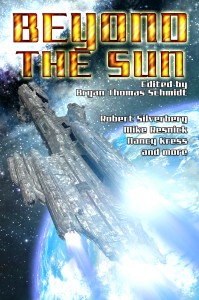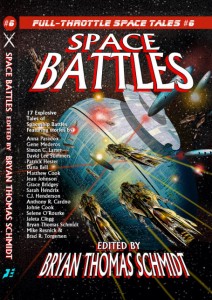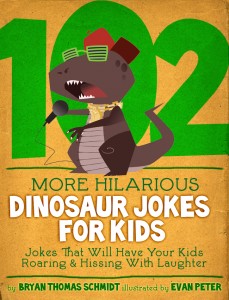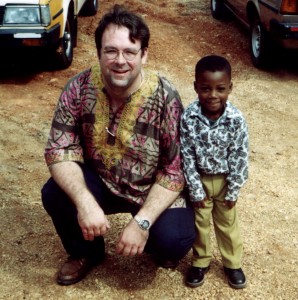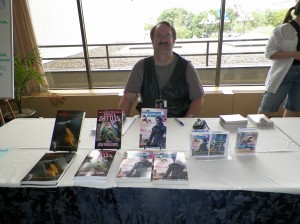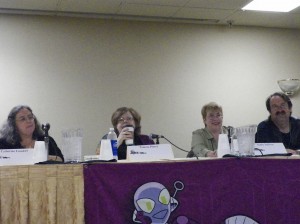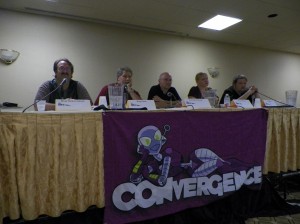 Getting a personal response on a story you’ve submitted from an editor is a big deal for most writers. At least those of us in the early years of our career. To have gotten a personal response at all puts you in the elite. After all, writers spend years getting form rejections and some never get over the hurdle to a personal response. It means your story was good enough to get past slush readers or first readers to the editor themselves. And it means that it impressed them enough–i.e. you impressed them enough–they felt you deserved the respect of a personal reply. When that reply is not a rejection but a request for revisions and invitation to resubmit that’s even better. It’s okay to be excited. It’s okay to be terrified. Such events rightly provoke both. But before you respond, you should think carefully about your next move. Here’s some things I’ve learned as both editor and in discussion with other editors and writers that you shouldn’t do:
Getting a personal response on a story you’ve submitted from an editor is a big deal for most writers. At least those of us in the early years of our career. To have gotten a personal response at all puts you in the elite. After all, writers spend years getting form rejections and some never get over the hurdle to a personal response. It means your story was good enough to get past slush readers or first readers to the editor themselves. And it means that it impressed them enough–i.e. you impressed them enough–they felt you deserved the respect of a personal reply. When that reply is not a rejection but a request for revisions and invitation to resubmit that’s even better. It’s okay to be excited. It’s okay to be terrified. Such events rightly provoke both. But before you respond, you should think carefully about your next move. Here’s some things I’ve learned as both editor and in discussion with other editors and writers that you shouldn’t do:
1) Tell People You Have A Story Sale – You don’t have a sale until you get a contract, or, at the very least, a note from the editor saying he or she wants to buy the story. So don’t jump the gun. It can not only be embarrassing but it’s unprofessional. Do it more than once, not only will your friends not take you seriously when you tell them the next time, but fellow pros may not take you seriously in other contexts as well. It’s okay to be excited. It’s okay to tell people you got a personal note. But represent it for what it is and don’t jump the gun.
2 ) Send Back a Rant – This may seem obvious but writers often have a range of reactions to story notes. Sometimes, especially when the notes are simple, they’re pleased and relieved. Changes can be made quickly and easily, with no stress and hardly any effort, and the story sent back. But other times, and usually this is the case when an editor asks you to revise and resubmit, there may be substantial changes requested. Some may even seem to take your story in a different direction than you’d planned. Some may make you think the editor missed what you were trying to do. If the changes are unclear, contacting the editor is okay, but never in anger. Even if you think the editor’s stupid or wrong, that’s information best kept between yourself, your mother, your lover and your pets. Don’t discuss it on Twitter or Facebook. Don’t mention the editor by name if you don’t have to. Keep it to a small, close circle. Sharing that with anyone else is bad news, especially the editor and other pros. It will never bring good results. It can only bring trouble. Save the Rant. Trust me.
3)Rewrite From Scratch – Sometimes the changes are overwhelming, either because they require a lot of work or restructuring, even a completely rewritten section, perhaps, or because you don’t know how to do them. Once you get past the “OMG, a professional editor liked my story enough to write back personally” phase and the “OMG I’m on the verg of a sale” phase, stop and think. By all means, reread the story carefully to see what’s asked for. Jot down notes if ideas come to you on some of the changes. By all means make the changes that seem obvious and simple. If an idea comes to you for the more complicated ones that seems to get it where the editor wants you to go, make it. But the one thing you shouldn’t do is start over from scratch. Undoubtedly the notes will ask for changes. But along with that, they likely mention things the editor liked. If they didn’t see potential for a sale, you’d have just gotten a rejection, after all. So be sure you preserve what they liked about the story while fixing what they don’t. I had a writer almost rewrite himself out of an anthology I was editing because he took his story back with my notes and trashed half of what I loved about it in a complete rewrite. This was a friend. And it was my first anthology as editor, so I called him and we discussed it. With a few more changes, I bought it anyway, but most editors would just pass. They don’t have the time or personal interest to put in that effort, so don’t over complicate it for yourself.
4) Bombard The Editor With Endless Questions – It’s okay to ask for clarifications if there’s something you don’t understand when an editor sends notes. It’s also okay if word changes are asked that you’re not comfortable with to explain the original choice and then ask if you can keep it. Editors send lots of changes. Not all of them are deal breakers. They know which ones they are but they might not spell it out. Wait until you’re reread the story and reviewed all the notes. Make the changes you’re comfortable with right away before contacting the editor. Then ask the rest in a clear manner, one at a time, noting page, etc. Don’t call the editor unless they invited you to do so. Do this by email or letter, depending on how they contacted you. Editors get lots of phone calls and have lots of obligations. Calling uninvited is a bit like demanding attention right now. Unless you’re a regular contributor or friend to the editor, you don’t want to send that message yet. And if you get to three emails with such questions all initiated by you, don’t hit send. Instead, stop and find someone else to bounce it off of. Trust me. Unless the editor shows clear interest and willingness to make time for ongoing discussion, you risk making yourself a pest or coming off as needy and difficult. Neither will endear you to the editor. They may pass on not only your story but you.
5) Rush Through The Tweaks Asked For Without Careful Reread And Consideration Of How They Affect The Rest – If an editor has taken the time to send notes and encourage you to resubmit, they’ve probably read your story more than once. They’ve given careful thought to what you’re trying to accomplish, how it fits with what they’re trying to accomplish and how best to get you there. But they’ve also likely read the story more recently than you have. Don’t send in revisions without a complete, careful reread of your story. Do not skim. Sit down when you can relax and consider every word. The last thing you want is a hasty rewrite that messes up other elements of the story. Make sure it’s right before you resubmit every time.
6 ) Send The Story To Another Market And Ignore The Editor – You should always respond to the editor with at least a short “thank you.” Even if you decide the changes requested are not something you’re comfortable with. It is your story, after all. It’s okay to thank them for their interest and the kind time they took to read the story and offer notes. You can tell them you’d prefer to send the story as is to other markets first. But be sure and let them know one way or the other whether they can expect it. Especially with anthologies, the editor may be holding other stories to wait and see yours. They have deadlines, too. Trust, it’s very frustrating as an editor to be waiting for a resubmission that never comes. Be Professional. Communicate. If you don’t and they later see it somewhere else, you have made a bad impression it’ll be hard to shake.
7) Throw The Story In the Circular File – This one I always thought was obvious but I’ve learned it’s not. Just because the story was not perfect does not make it a failure. Throwing out stories in haste is a fool’s game. It’s wasting potential. Even if you don’t want to make the requested changes, maybe another editor will like it. After all, if your story made it past the slush and first readers to the editor him/herself, then that’s saying something. If they made time to personally respond, that’s saying something else: they respect your talent and like your story. Even if they don’t accept it, this is not the time to give up on it. Get what you can from their notes and get it back out there. The next editor may buy it on the spot.
Okay, there’s 7 Write Tips For What Not To Do After Getting Revision Notes From An Editor. Love to hear comments if you have any more. Meanwhile, hope this is helpful. For what it’s worth…
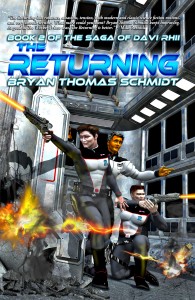 Bryan Thomas Schmidt is an author and editor of adult and children’s speculative fiction. His debut novel, The Worker Prince (2011) received Honorable Mention on Barnes & Noble Book Club’s Year’s Best Science Fiction Releases for 2011. A sequel The Returning followed in 2012 and The Exodus will appear in 2013, completing the space opera Saga Of Davi Rhii. His first children’s books, 102 More Hilarious Dinosaur Books For Kids (ebook only) and Abraham Lincoln: Dinosaur Hunter- Lost In A Land Of Legends (forthcoming) appeared from Delabarre Publishing in 2012. His short stories have appeared in magazines, anthologies and online. He edited the anthology Space Battles: Full Throttle Space Tales #6 (2012). He hosts #sffwrtcht (Science Fiction & Fantasy Writer’s Chat) Wednesdays at 9 pm ET on Twitter and is an affiliate member of the SFWA.
Bryan Thomas Schmidt is an author and editor of adult and children’s speculative fiction. His debut novel, The Worker Prince (2011) received Honorable Mention on Barnes & Noble Book Club’s Year’s Best Science Fiction Releases for 2011. A sequel The Returning followed in 2012 and The Exodus will appear in 2013, completing the space opera Saga Of Davi Rhii. His first children’s books, 102 More Hilarious Dinosaur Books For Kids (ebook only) and Abraham Lincoln: Dinosaur Hunter- Lost In A Land Of Legends (forthcoming) appeared from Delabarre Publishing in 2012. His short stories have appeared in magazines, anthologies and online. He edited the anthology Space Battles: Full Throttle Space Tales #6 (2012). He hosts #sffwrtcht (Science Fiction & Fantasy Writer’s Chat) Wednesdays at 9 pm ET on Twitter and is an affiliate member of the SFWA.


